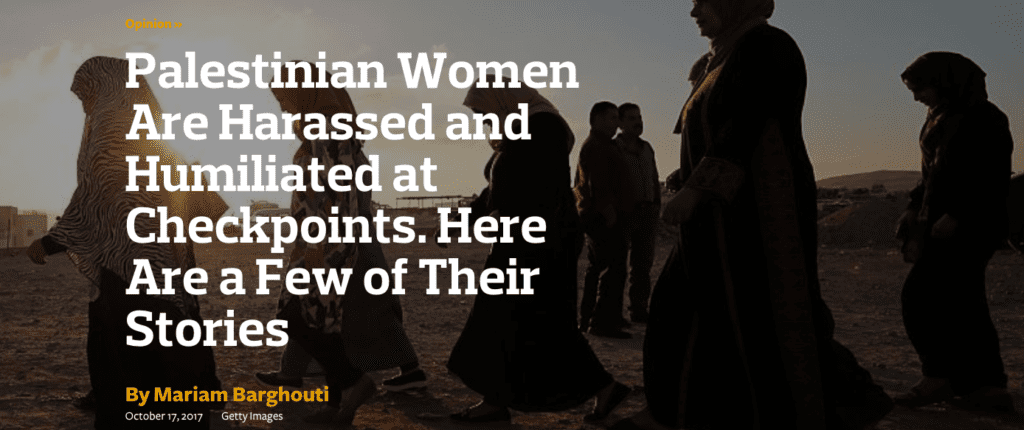Mariam Barghouti gives space for my youngest daughter to tell about her first Israeli interrogation at age 12 and for me to describe my recurrent harassment at Ben Gurion airport, in her article in The Forward, “Palestinian Women Are Harassed and Humiliated at Checkpoints. Here Are a Few of Their Stories.” Read the full piece here.
